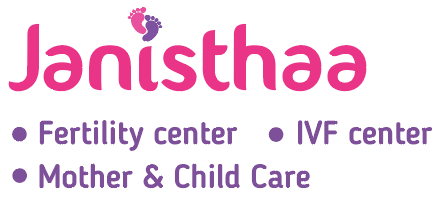Fallopian tubes, also known as Uterine tubes, are part of the female reproductive system that connect the uterus and the ovaries. These tubes aid in the movement of the fertilized eggs from the ovaries to the uterus, every month during the course of ovulation. Conception also occurs in the fallopian tube as the sperm swims through the uterus to reach the tube. Once fertilized by the sperm, the egg moves into the uterus through the tubes for implantation. The tubes are made up of a layer of cells, with hair-like extensions called Cilia, that help carry the eggs.
Blockage of Fallopian tubes known as Tubal Obstruction could be one of the reasons for infertility as it prevents free movement of the sperm to the egg and the fertilized egg to the uterus. This kind of infertility is also known as Tubal Factor Infertility. The blockage could be on side or both sides of the ovaries and is known to affect 30% of the female population. This is usually found when a test for tubal functions called Patency is carried out to check if the tubes are open. Some of the other diagnostic methods used to test blockage are laparoscopy and sonography.
Also, Read– WHY REPEATED IVF FAILURE HAPPENS?
Symptoms
Externally, it is difficult to detect if one suffers from the blockage of the fallopian tubes as there are no overt symptoms of the same. Usually, the case of blockage is detected when there is a failure of conception despite trying for longer periods of time. In a few cases, blockage of the tubes might lead to mild, regular pain on any one side of the abdomen or lower abdominal pain and unusual vaginal discharge. This usually occurs when fluid fills and enlarges a blocked fallopian tube, which is called as hydrosalpinx.
At other times, diseases such as Endometriosis tend to increase the risk for developing blockage of fallopian tubes and are detected through symptoms such as painful menstruation and painful sexual intercourse. Pelvic Infection/Pelvic Inflammatory Disease is another such condition that could lead to blockage and has its own symptoms which include the above-mentioned symptoms and others such as high fever, nausea, and vomiting, etc.
Causes
It has been reported that conditions such as Scar Tissues, Infections, and Pelvic adhesions (bands of scar tissues) can cause a block in the fallopian tubes.
Some of the related disorders and health conditions that could lead to blockage are:
- Pelvic inflammatory disease – which leads to hydrosalpinx
- Endometriosis – where tissue forming the inner lining of the uterus grows outside the uterine cavity
- Sexually transmitted diseases – such as chlamydia and gonorrhea
- Past ectopic pregnancy – when the fertilized egg gets stuck in the blocked fallopian tube, which might result in medical emergencies
- Fibroids
- Past abdominal surgery
Precaution
As Fallopian tube blockage can be caused by sexually transmitted diseases, it is important to take precautions and decrease the risk by using protection during copulation and employ regular screening of STIs
Treatment
In-Vitro Fertilization (IVF)– When there is a blockage, it is harder for the fertilized egg to move towards the uterus. In such cases, IVF is usually recommended, if feasible.
Fertility Drugs– In cases where the blockage has occurred on one-side, fertility may not be affected completely as the egg can still travel through the other tube. Fertility drugs could be prescribed in such cases to increase the ovulation chances
Surgery– In case of blockage due to fewer amounts of scar tissue or adhesions, laparoscopic surgery might be conducted to remove the blockage. Treatment may not possible if scars are found in larger amounts
In cases of ectopic pregnancy or infection, surgery can be performed to remove the damaged parts and connect healthy ones
Chances of pregnancy post-treatment depend on the severity of the blockage and the subsequent treatment given. Thus, it is advisable to consult the experts before opting for any particular kind of treatment. Janisthaa Fertility Centre & Hospital is one such center that is dedicated to providing comprehensive care for all the patients struggling with infertility-related complications. Their dedicated team of top-notch doctors has a track record of high success rate. For a free consultation and more information, visit http://jnaistha.local/ or call +91 7619198082.

